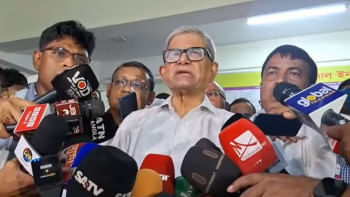Russian, Chinese Vaccines: Govt now going for coproduction

The government approved in principle the local coproduction of Russia's Sputnik V and China's Sinopharm coronavirus vaccines involving Bangladeshi drug makers.
The Cabinet Committee on Economic Affairs (CCEA) yesterday approved the proposal made by the health ministry, said Additional Secretary Shahida Akhter of the Cabinet Division told reporters yesterday.
The development came a day after the government authorised the emergency use of Sputnik V and also sought immediate supply from Sinopharm at a meeting with Chinese delegates.
Bangladesh's mass inoculation programme suffered serious setbacks after the Indian government restricted the export of the Oxford-AstraZeneca vaccine produced by the Serum Institute of India.
Shahida did not explain how the "co-production" will take place.
"The names of the companies were not mentioned. The health minister said several companies in the country are capable of producing the vaccines," said the cabinet official.
The Executive Committee of the National Economic Council (ECNEC) in its next meeting may approve the funds needed for the technology transfer and other steps of the process, she added.
After the CCEA meeting yesterday, Finance Minister AHM Mustafa Kamal said, "We have to keep alternative sources [of vaccines] in consideration. That does not mean the first source got cancelled. We are pursuing the first source [India's Serum] and at the same time discussing about the Russian Sputnik V and Chinese Sinopharm vaccines as alternatives."
Around 31.21 lakh people have yet to receive their second jab of the AstraZeneca vaccine produced and supplied by Serum. The government had 21 lakh doses in stock as of yesterday.
Russia has offered to sell around 2.5 crore doses of the Sputnik V in phases to Bangladesh by December and assistance in producing the shots locally.
The Russian government offered another 3.5 crore doses by April next year.
Sinopharm committed to giving six lakh doses to Bangladesh for free and the drug maker also said it could supply 15 lakh doses every week, health officials said.
DIRECT PROCUREMENT OF HEALTHCARE EQUIPMENT
The CCEA approved two other proposals in principle to purchase equipment needed for Covid-19 tests and treatment.
One proposal was about purchasing RT-PCR test kits and PCR consumables while the other was about purchasing protective gear and treatment equipment from private firms utilising the direct procurement method (DPM) through the Central Medicine Store Depot (CMSD).
Asked whether the DPM will make room for purchasing substandard products at exorbitant price, the finance minister said, "We also look after such issues."
ADB TO LEND $940 MILLION FOR VACCINE PURCHASE
Officials in the Economic Relations Division said the ADB board might approve the fund by the end of May.
"ADB's money that is coming is to provide for those vaccines that are cleared by the WHO," ADB Country Director Manmohan Parkash told a briefing yesterday.
Only the AstraZeneca and Pfizer/BioNtech vaccines have WHO approvals.
Several other pharmaceutical companies have sought for vaccine listing with the WHO, he said, adding that many of the potential vaccine suppliers were demanding almost full payment in advance. "We have to be ready for this."

 For all latest news, follow The Daily Star's Google News channel.
For all latest news, follow The Daily Star's Google News channel. 



Comments